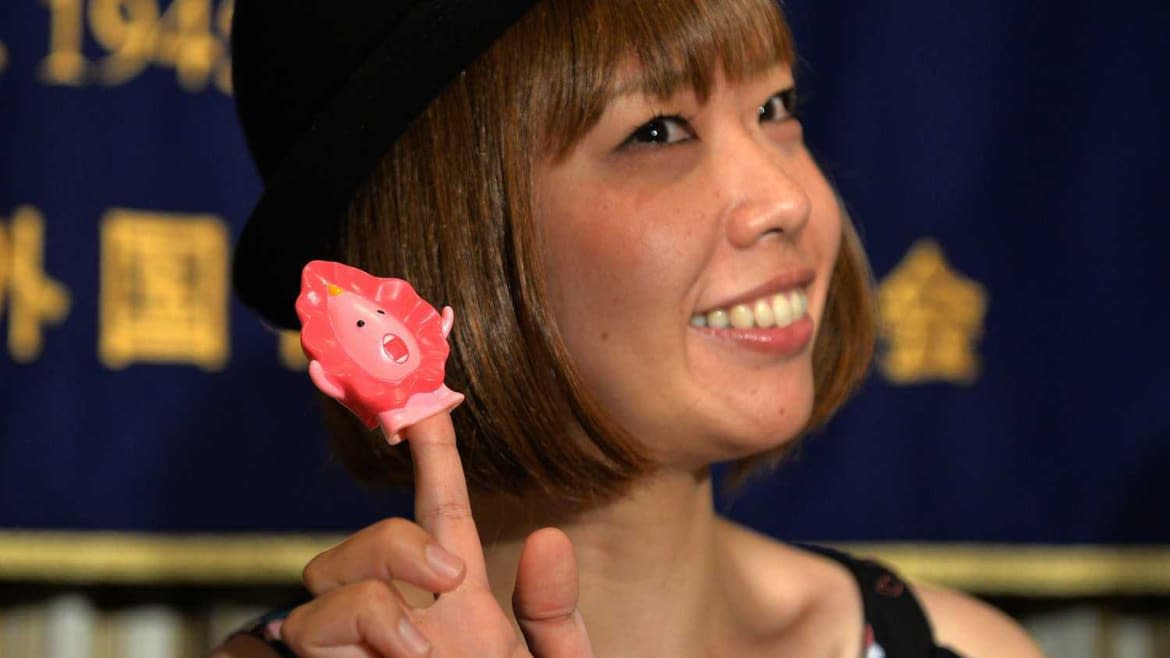How Five Extraordinary Women Are Fighting to Shatter Taboos About Female Sexuality

#Female Pleasure, a documentary from Swiss director Barbara Miller opening in New York on Friday, is at once devastating and inspiring. It follows five women from different cultures fighting back against the societal structures that restrict female sexual pleasure and autonomy. In spite of the vast dissimilarities in their backgrounds, the women are all activists in their own right, and their experiences are connected by the shared injustice of being raised to feel as though their bodies do not belong to them.
We are first introduced to Deborah Feldman, who was raised in the Orthodox Hasidic Jewish community in Williamsburg, Brooklyn. She describes the seemingly insurmountable schism between her neighborhood and the rest of New York City. “Even though there was no wall around my community,” she says, “there was a very effective invisible barrier.” Though the Manhattan skyline beckoned from just across the river, “it could have been another planet.”
Only when Feldman was 17 and preparing for her arranged marriage did her elders offer a euphemistic explanation of sex and its sole purpose: reproduction. Her first sexual experience with her husband was painful, unenjoyable, and resulted in her immediate pregnancy. “Once I grew into my full feminine power as a woman,” she explains, “that’s when I became completely crushed.” Shortly after giving birth to her son Isaac, she made the decision to leave the Hasidic community so her son would not be raised the same way she was.
Vithika Yadav, the founder of the Love Matters India sex education platform, is next, speaking bluntly about living in a male-dominated society in which “having a girl child is a liability” and “honor killing is still very common.” Yadav founded Love Matters to break down the taboo surrounding female sexuality and to provide an online space for Indian people to engage in candid discourse about healthy love, sex, and relationships. In touchingly mundane scenes of domestic life with her husband, a pilot, and their young son clad in Spider-Man pajamas, one understands the weight of Yadav’s assertion that she is “very proud of marrying the person that I wanted to marry.”
Over the course of the film’s 96 minutes, we also meet Rokudenashiko, a Japanese artist who accessorizes her copper-colored bob with large bows and makes sculptural art from molds of her own vagina; Doris Wagner, a soft-spoken nun who cautiously divulges her heartbreaking story of being raped by a priest, shattering her faith and driving her to leave the Catholic Church; and Leyla Hussein, an advocate for the abolition of female genital mutilation (FGM).
Each woman, all invaluable in terms of the work they are doing, frame their stories in different ways. Hussein, a psychotherapist by day and herself a survivor of FGM, is assertive and confident as she speaks before crowds. She defines the common practice as sexual assault of a child and reminds people that it is a global problem affecting not just girls on the African continent, but the Somali-Muslim diaspora worldwide. Rokudenashiko’s story provides some relief in its light-heartedness, particularly when she gleefully sets sail in a canoe made from a 3D-printed model of her genitalia. But even that relief is short-lived, and she is arrested for obscenity in a raid on her home conducted by 10 police officers, prompting her to realize “how many people felt such hatred towards vaginas.”
And then, just when the weight of centuries of oppression and inequality begins to feel unbearable, a sense of hope creeps up on you in a way that, crucially, does not undermine the urgency of the film’s call for change.
One such turning point is a scene in which Feldman drives through Williamsburg with Isaac peering out the window in the backseat, enthralled and asking the kinds of honest questions characteristic of small children. “I don’t like to come here, you know, Isaac,” she tells him, “because it reminds me that I used to feel really stuck.” Not anymore. She asks him if he wants to move back there, and without skipping a beat, the young boy replies emphatically, “No. Definitely not.”
Towards the end of #Female Pleasure, Doris Wagner’s grave, bespectacled face breaks into a warm smile as she allows herself to appreciate her life after the church, married with a child and pursuing a doctorate degree. “I was longing to feel my body again,” she says, “to listen to music, real music, which is about emotions. Love songs. It was like being born again.”
Got a tip? Send it to The Daily Beast here
Get our top stories in your inbox every day. Sign up now!
Daily Beast Membership: Beast Inside goes deeper on the stories that matter to you. Learn more.

